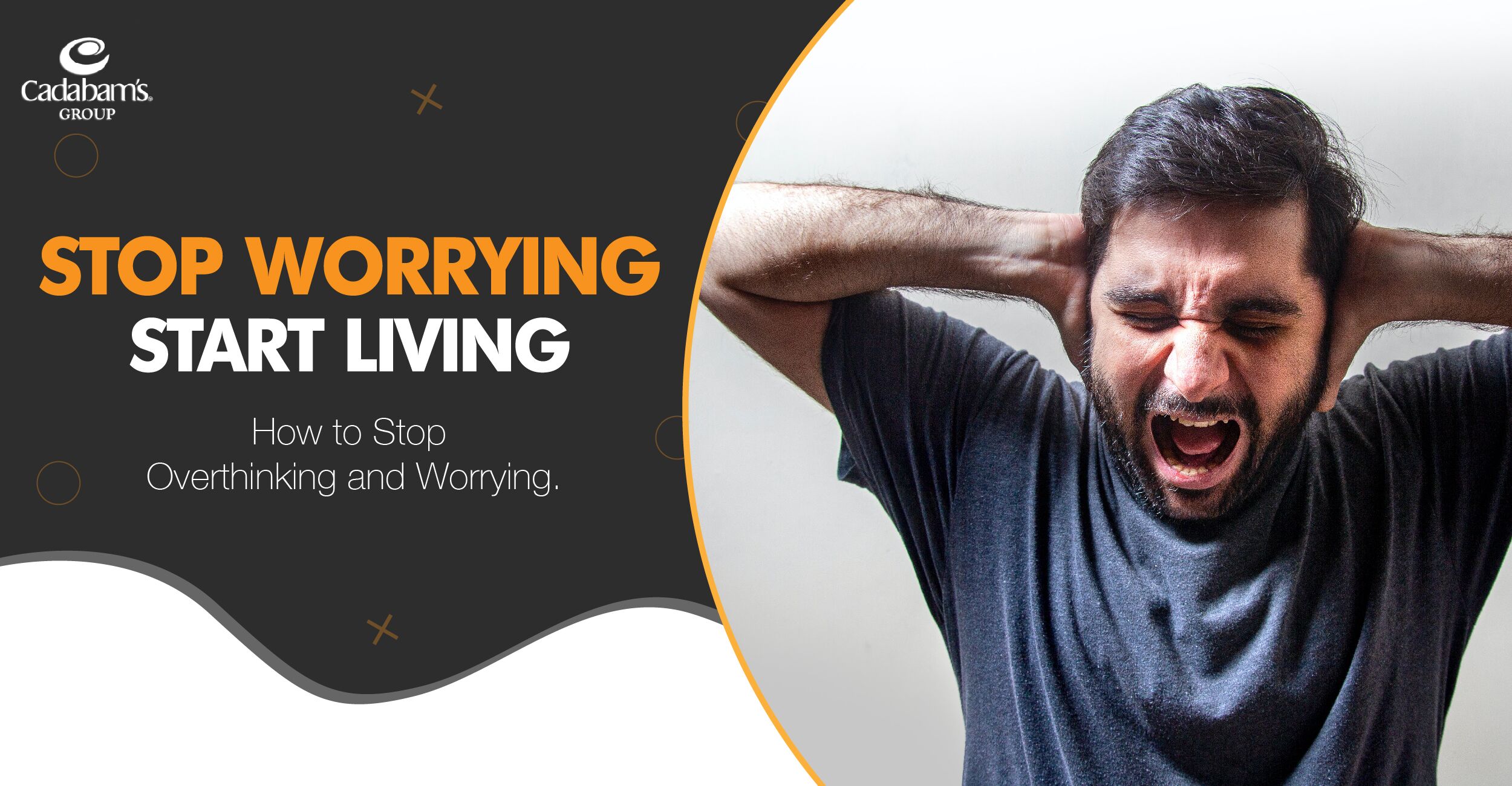Table of Content
Are you constantly worrying about the future? Can’t stop overthinking? Do you feel that you have no control over your own thoughts?
All of us worry from time to time. It is a natural response to uncertainty. However, long-term stress and continuous negative thoughts can affect your decision-making skills. It can cause sleep problems, and even impact your blood pressure and digestion. Chronic worrying, overthinking, and anxiety impact your mental health and physical health.
Here are 7 easy methods you can implement to stop worrying and start living!
1. Catch Yourself: Pay Attention to Your thoughts
You can’t stop overthinking if you don’t realize you’re doing it. Pay attention to your thoughts.
Are your thoughts getting stuck in a loop? Have you been thinking about a phone conversation for the past 15 minutes? Have you been worrying about a hypothetical situation for over an hour? Are your thoughts going on a negative downward spiral?
If you have been thinking about a remark someone made for the past hour, ask yourself: Is this train of thought worth the time I’ve wasted over it?
2. Re-frame your thoughts: Observe your Negative Thoughts
Observe your thoughts as if you are a third-party scientist. Make sure you use your thoughts to observe yourself instead of criticizing yourself.
For example, instead of thinking “I’m a wreck”, re-frame the thought into: “I notice that I am feeling out of control.” Change those negative thoughts into subjective statements rather than a declaration of facts.
This technique adds distance between your identity and your thoughts. It helps you understand that your negative thoughts are not factual statements.
3. Go to Problem Solving Mode: Analyze the Risks
In case there is a particular issue that has been worrying you constantly, go to problem-solving mode. For example, you may worry about an upcoming interview or you are anxious about your financial problems. Take the issue that is worrying you, and analyze it objectively.
Jot down, on a piece of paper, all the pros, and cons of the situation. Write down the best-case scenario as well as the worst-case scenario. Additionally, write down the controllable factors and uncontrollable factors.
There is no point worrying about uncontrollable factors. For instance, worrying about whether it will rain on the day of an important event is futile. No matter what you do, you cannot control the weather! It is more productive to focus on the things you can control. Make contingency plans. Take those steps which will increase your chances of success.
Understand that success or failure is not tied to your identity or self-worth. Remember:
“It is possible to commit no mistakes and still lose. That is not weakness, that is life.” - Captain Jean-Luc Picard, Star Trek
Sometimes life disappoints you. However, you can always pick yourself up and try again. Learn to be resilient to the ups and downs of life.
4. Set a deadline: Schedule Your Chronic Worrying
Though it may seem counterintuitive – take time out for your chronic worrying. If you cannot stop yourself from worrying, you can definitely manage it!
Schedule 15 minutes daily just to worry incessantly about whatever issue bothers you. Mark it in your calendar or write it down, if needed. Feel free to worry for those 15 minutes!
However, after the scheduled time, stop worrying about the issue. When you feel negative thoughts encroaching, tell yourself that you can only worry about the issue at the appointed time. Clear your mind and do not go into “what ifs” at any other time.
Just ensure that your scheduled worrying time is short (not hours long). Also make sure that you stop overthinking about it after the deadline.
5. Get outside: Relaxation is Essential
Life is busy and we deal with innumerable responsibilities on a daily basis. Jumping from task to task and chore to chore can be extremely tiring.
Relaxation is essential for both your mental and physical health. Getting physical exercise helps you focus on your body and get you out of your own head. Exercise is beneficial for your physical health. Moreover, it makes you feel refreshed and boosts your mental health!
Cultivate your hobbies: play sports, learn a new musical instrument, read books, or just go outside for a walk. Ensure that you make time to do things you like!
6. Stop Worrying Start Living: Focus on the Now
One of the major questions. How to stop worrying about the future? People tend to excessively worry about the future - “what will happen to me?”, and overthink about the past - “why didn’t I do that instead?”. Anticipation for the future and regrets about the past are normal human emotions. However, you must understand that the only time frame you can truly control is the present moment.
Learn to root yourself in the present. When you feel anxious, take deep breaths and focus on the current moment. Learn meditation and deep breathing techniques. It can help you manage your anxiety.
Practicing mindfulness in daily life can significantly improve your mental health.
Keep a gratitude journal. It can align your thoughts in a more positive direction and help you focus on small acts of kindness.
7. Get Help: Mental Health Professionals Can Assist You
It is courageous to ask for help when needed.
If your chronic worrying is causing sleep problems and disrupting your daily life, get professional help.
Sometimes we need an objective third party to listen to us and help us through a rough patch. When your happiness and peace of mind are at stake, you must seek the assistance of mental health professionals.
If you need any help, do not hesitate to reach out to us. You can contact us by calling +91 97414 76476 or by visiting our website.
How Cadabam's Help you for Addiction?
- 410+ Professional Consultants
- 1,00,00+ Happy Faces
- 120+ Currently Seeking Treatments





